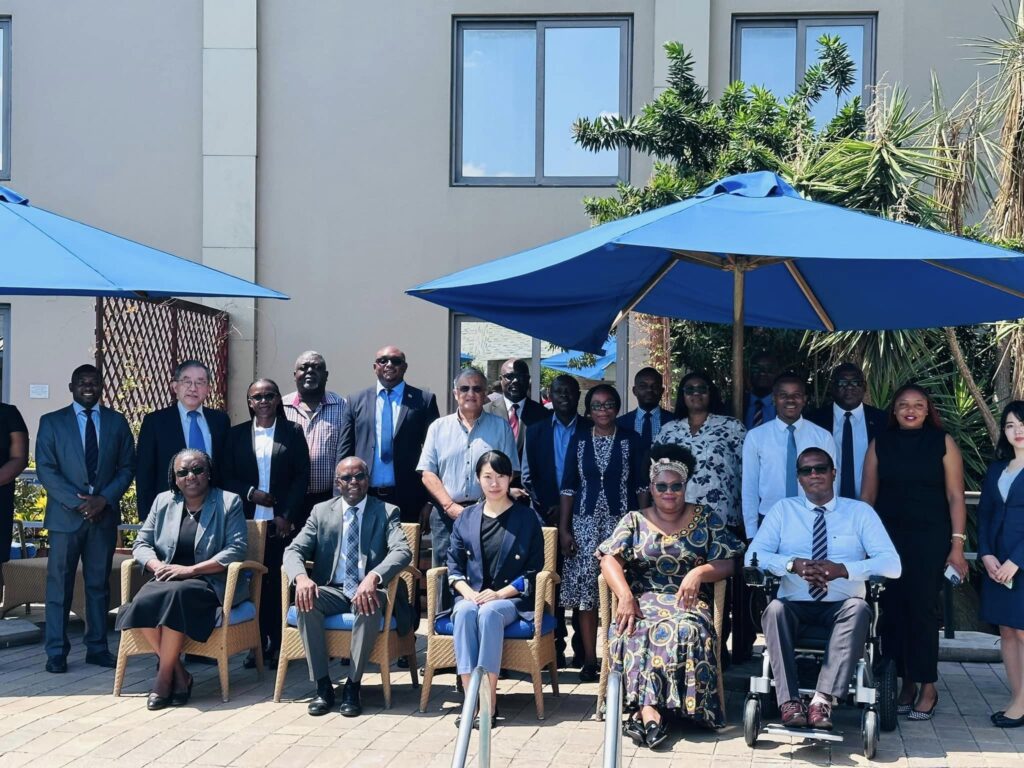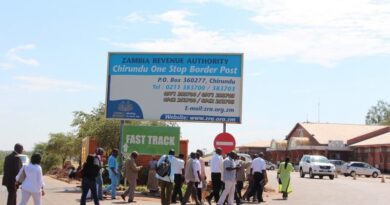MCTI Launches Time Measurement Study Report to Improve Border Clearance and Trade Facilitation
The Ministry of Commerce, Trade, and Industry (MCTI) has launched a comprehensive Time Measurement Study Report, aimed at enhancing efficiency in border clearance processes and strengthening Zambia’s position in international trade.
During the launch event held this morning, Lillian Bwalya, Permanent Secretary for Trade and Commerce, highlighted the government’s recognition of time measurement studies as vital in improving clearance times at border posts.
She emphasized the importance of streamlining operations across agencies involved in border activities and improving the experiences of stakeholders who rely on border efficiency.
“Since 2019, Zambia has conducted nine-time measurement studies to assess clearance processes at our borders,” said Mrs. Bwalya. “With support from the Japan International Cooperation Agency (JICA), the Chirundu and Kazungula one-stop border posts (OSBPs) have benefitted from three detailed studies that identify key areas for improvement.”
These studies include a 2022 Baseline Study, a 2023 Monitoring and Evaluation Time Release Study (TRS), and the recently completed 2024 Endline TRS. The findings from these studies shed light on the delays faced by the private sector, especially challenges arising from personnel shortages at border agencies and limited connectivity in clearance systems.
A notable recommendation from the 2022 Baseline Study led to the implementation of a Coordinated Border Management (CBM) program in January 2024, which has already reduced the number of agencies operating at border posts from 18 to 6. This streamlined approach, combined with connectivity enhancements for the Automated System for Customs Data (ASYCUDA), has enabled more agencies to access and work on a unified system.
Mrs. Bwalya lauded the CBM initiative, which aims to reduce redundancy and operational costs. “This consolidation aligns with our baseline study’s recommendation to improve coordination among agencies, and the integration with ASYCUDA allows certain agencies to operate on the system for the first time at these two OSBPs,” she stated.
Expressing gratitude for JICA’s consistent support, Mrs. Bwalya commended the agency’s collaboration, which has been crucial in facilitating these studies and the resulting reforms. She also acknowledged the efforts of the National Time Release Study Working Group, whose commitment brought the report to fruition.
Zambia Revenue Authority (ZRA) Commissioner General Dingani Banda echoed the importance of the study, noting that the report is a testament to the collaborative efforts of the Ministry of Commerce, Trade, and Industry, JICA, and ZRA customs officials.
According to Mr. Banda, the findings reflect Zambia’s commitment to transforming customs operations, with an eye toward trade facilitation, enhanced revenue collection, and overall economic growth.
“Zambia has embarked on a significant transformation of its customs processes, aiming to facilitate trade, increase revenue, and stimulate economic development,” said Mr. Banda. He stressed that the time release study serves as an essential tool in assessing customs efficiency, identifying bottlenecks, and highlighting areas needing improvement.
Mr. Banda emphasized that the ultimate goal is to position Zambia as a stronger player in global trade by streamlining customs management. This, he explained, would reduce border inefficiencies, cut down operational costs, and create an environment conducive to economic growth.
“Our ultimate goal is to enhance Zambia’s position in the global trade arena. By streamlining customs management, we can reduce bottlenecks, lower the cost of doing business, and ultimately foster an environment where our economy can thrive,” he concluded.



